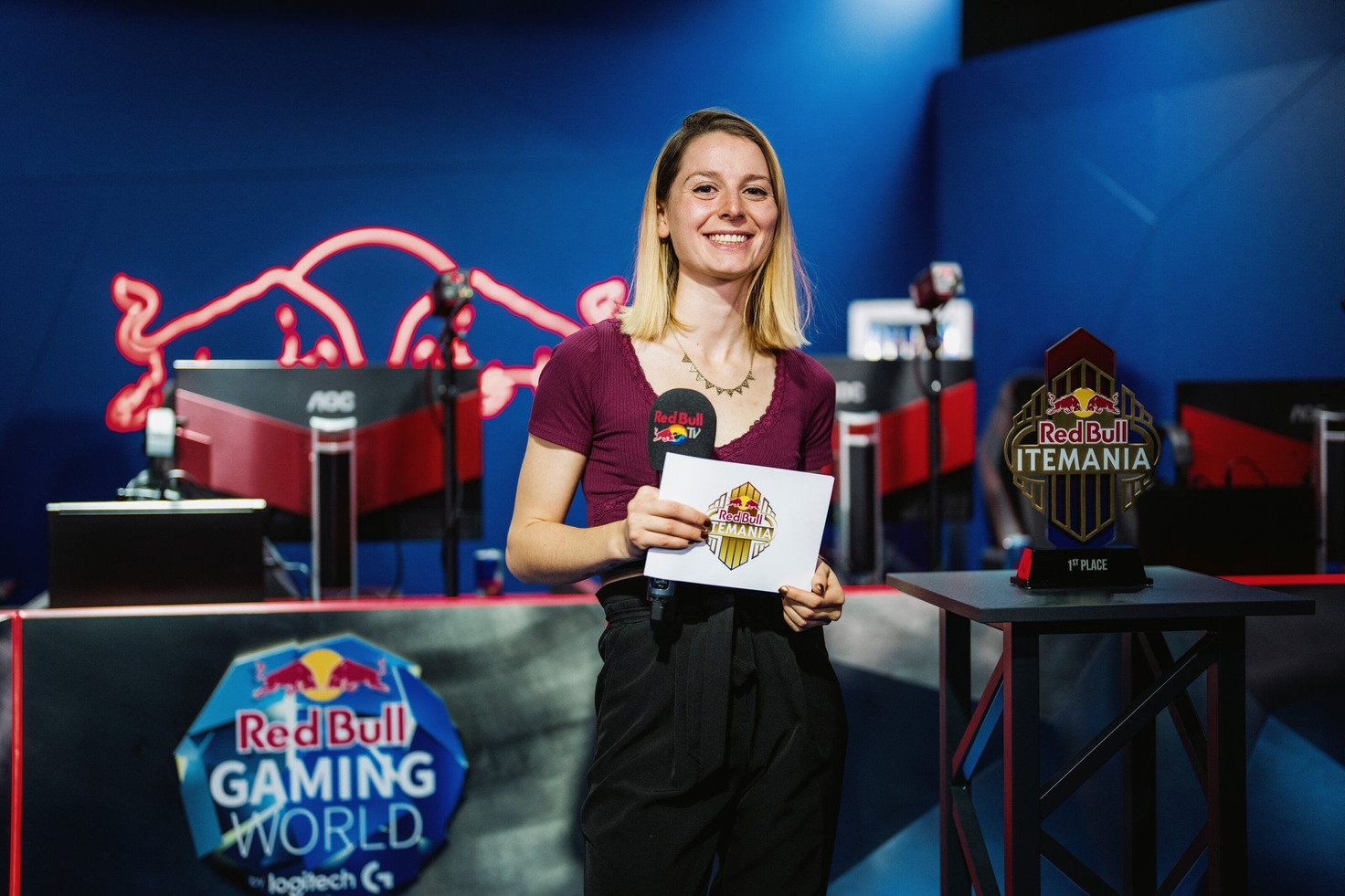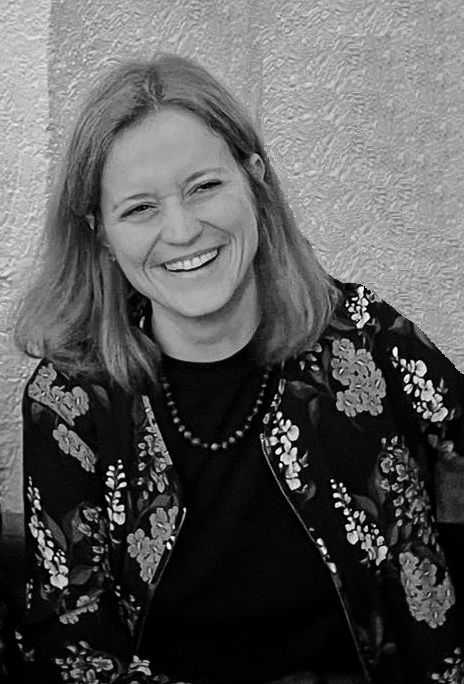Women in Swiss Esports: Marissa Duret aka Slayz

Photo credits: Armon Ruetz - Red Bull CH Content Pool
For this second highlight we introduce you to Marissa Duret, aka Slayz. When she is not involved in esports activities, this young woman is a game producer & game designer. She spends most of her time working on video games, virtual museums, and interactive cybersecurity content. In her free time, she enjoys spending time with her dog Vhalla and going on hikes with her. Marissa is also a very curious person and loves to explore new places and cultures and has always been interested in learning more about history and science whenever she travels somewhere.
She has been active in esports since 2016 and has always loved taking part in the organisation of esports events and tournaments. She also loves to take to the stage from time to time as a host*. When she is not too busy, she is also one of our referees within the SESF, ensuring that everyone is being treated fairly during esports tournaments. Since 2020, she has founded her own company, GameDev, and works on different productions such as VR and puzzle games with her associates.
Let us now dive into her interview!
*Host = acts as the main presenter of a tournament or an event. They will usually take to the stage, hype the audience up, introduce teams and may be required to interview players and other experts, like a TV presenter would.
Seven Getting to Know You Questions:
Q1. What is your favourite dish?
"Tough question… I love so many different kinds of foods. If I really have to follow my heart I’d choose either Spaghetti Bolognese or Pad See Ew."
Q2. What is the best game you have ever played?
"All the games I have played have brought a lot into my life, however I guess Last of Us was a turning point for me."
Q3. Who made you love video games?
"My dad and my brother; they are huge gamers as well!"
Q4. If you could hold an esports event anywhere in the world, where would it be?
"London, in terms of places to hold the event, accessibility, housing, food and such, it seems like a pretty good place depending on what you may want to organise."
Q5. Do you play on PC, Console or Mobile?
"I play mostly on PC now, though I spent days, if not weeks or months on my PS2 back in the days."
Q6. If you could join any esports team, who would that be (Swiss / Worldwide)?
"G2 Esports. I just love their content team."
Q7. If you were a professional player, which game would you like to compete in?
"If I talk about the type of games, I’d love to play Overwatch, however the competitive structure has a few issues. In terms of competition and infrastructure, I’d be a pro League of Legends player."
About Your Background And Career:
Q1. What made you get into esports and how did you get started?
"I used to play for a team on Overwatch back in 2016, however it was quite time-consuming among other things so I stopped. A friend who was in the PolyLAN committee asked me if I would be interested in organising an Overwatch tournament for PolyLAN 29 as not many people knew the game well enough to organise a tourney for it back then. I said why not!"
Q2. How are you involved in esports at the moment?
"I still organise and administrate tournaments. I have organised over 30 events since 2016. I am part of the SESF too as a referee and I am also in charge of preparing new referees on the mediation module. I also host events from time to time nowadays, both on stream and on live stages."
Q3. Where do you see yourself in esports in the next five years?
"I guess I will still organise events if my professional life allows it and I can manage to maybe connect these two aspects of my life. I may still host events from time to time but that is a little less certain to be honest."
Representation & Inclusivity Questions:
Q1. Do you feel that women and marginalised genders are represented well enough in esports? How about in Switzerland?
"No, they are definitely not represented well enough. However many clubs, organisations and influential voices of the esports community are doing a lot to change things, so it is way better than a few years back, obviously, but in my opinion it is still not enough. We still have way too many women that don’t feel that esports is a welcoming world for them. Many feel threatened and not welcomed by the problematic parts of the community.
In Switzerland I have noticed that we have more and more women in the scene which I love. Some events are trying to create safer spaces. For example, I had a discussion with SwitzerLAN last year (that they initiated) about how they could make the LAN event a safer and more welcoming place for women and marginalised communities. It is a topic that is being approached and discussed by organisers, which is great. However, there still is a great lack of education among some members of the community, and the people in charge of events cannot control everyone. Even if they can react to a problematic behaviour in a good way, it still means that it took place.
In summary, they are represented, but not well enough. It is getting better but there is still a crucial lack of education shown by some members of the community, both on the world level as well as within Switzerland."
Q2. What is currently the biggest challenge related to this topic and how would you start to overcome it?
"Education. Many people feel untouchable when hidden behind a screen. As they can say and do as they want because there are little to no consequences. I really like what Noetic is doing in their academies. We need to sensibilize younger gamers and teach them how to treat people with respect. At events, we need to be firmer when it comes to punishing sexism, racism, homophobia and such. It is always stipulated in sets of rules that it is obviously not tolerated; however, events should be safe spaces in which if these issues happen people feel welcome to come and confide in the people who have authority on these questions."
Q3. Do you feel there is any progress being made for representation on the scene?
"There is definitely progress. I am very happy to see all that has been done in the past few years. Both by amazing women voicing their opinions on the matter, and by organisations listening and then acting on the matter."
Q4. If you could bring one thing into the industry to promote more inclusion, what would that be?
"A campaign highlighting the stories of women in esports. A small presentation on the person, where they are from, what they do, how have they reached the position they are in at the moment, what are their goals etc.
We have women in every instance of esports. I would love for young girls to see that these people exist in different kinds of positions, that they come from all over the world and that there is a place for anyone that wants it. You just gotta take a leap!"
Q5. What do you think women can bring to the esports scene?
"Many things. Diversity, mostly. I am doing Game Development on the side and I have noticed that we do not approach things in the same way that our male colleagues do. It is something that is likely found in any domain. With diversity you get a wider range of ideas and possibilities. Problem solving becomes easier as you have a different set of eyes that have been raised in a different social context. I do think that it is not limited to women and marginalised genders. We have a general diversity issue and I would love for esports to grow alongside the traditional bubble. It would culturally be a huge gain and it could give new perspectives to organisations, events, editors and so on."
If you want to know more about Marissa and her work within the Swiss esports scene, we invite you to visit her profile here.
